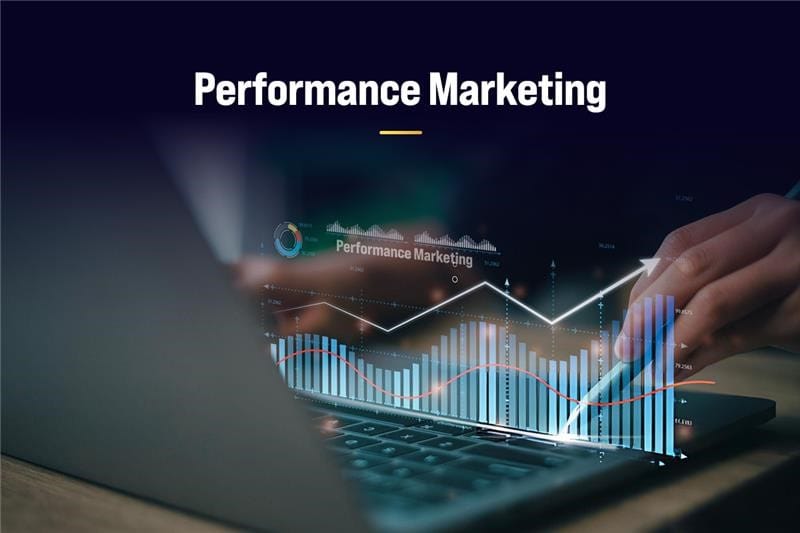In today’s digital-first world, businesses are no longer satisfied with marketing campaigns that only increase visibility without guaranteed results. Every brand, from startups to global enterprises, wants measurable outcomes—be it more clicks, qualified leads, or higher sales. This is where performance marketing comes in.
Unlike traditional advertising (where you pay upfront for impressions, billboards, or TV ads regardless of results), performance marketing ensures that you pay only for actual performance. Whether it’s a click, a lead, or a sale—your investment directly contributes to business growth.
In this blog, we’ll explore what performance marketing is, its key channels, benefits, and how it can help businesses like yours achieve better ROI and sustainable growth.

What is Performance Marketing?
Performance marketing is a results-driven digital marketing strategy where advertisers pay only when a specific action is completed.
For example:
An e-commerce store pays only when a sale is made.
A business pays when a user clicks on its ad.
A brand pays when someone fills out a lead form.
This makes performance marketing one of the most transparent, accountable, and cost-effective methods of online promotion.
Key Channels of Performance Marketing
- Search Engine Marketing (Google Ads)
- Ads that appear on Google when users search for relevant keywords.
- Example: A user searches “buy lipstick online” and sees an ad for your beauty store.
- Social Media Advertising (Facebook, Instagram, LinkedIn, Twitter)
- Highly targeted ads based on user interests, behavior, and demographics.
- Example: Promoting skincare products to women aged 18-35 who follow beauty influencers.
- Affiliate Marketing
- Businesses partner with affiliates (bloggers, influencers, websites) who promote their products.
- Payment is made only when affiliates drive actual sales or leads.
- Native Advertising
- Ads that blend with the content of a website or app, appearing more organic.
- Example: Sponsored articles or product recommendations on lifestyle blogs.
- Influencer Marketing
- Partnering with influencers who promote your brand to their audience.
- Payment can be based on clicks, conversions, or sales.
Why Performance Marketing is Beneficial for Businesses
1. Cost-Effective Advertising
- You pay only when desired actions are completed.
- Reduces unnecessary spend on impressions or views that don’t convert.
2. Measurable and Transparent Results
- Every click, lead, and sale is tracked with analytics tools.
- Businesses know exactly where their money is going.
3. Better Return on Investment (ROI)
- Since campaigns are performance-based, they generate higher ROI compared to traditional methods.
4. Scalability
- Once a campaign shows results, you can easily increase the budget and scale it up.
5. Targeted Marketing
- Advanced targeting ensures your ads reach the right audience.
- For example, showing beauty product ads only to women in metro cities aged 20–40.
6. Flexibility
- Campaigns can be optimized and adjusted in real time based on performance
How Performance Marketing Helps Your Business Grow
✅ Startups & Small Businesses – With limited budgets, they can focus only on campaigns that bring actual results.
✅ E-commerce Stores – Increase sales by paying only when a user purchases through the ad.
✅ Service-Based Businesses – Generate high-quality leads for services like consulting, healthcare, education, etc.
✅ Freelancers & Creators – Drive traffic, build personal brands, and increase conversions through cost-effective ads.
By implementing performance marketing, businesses can maximize ROI, minimize risks, and achieve faster growth.
Conclusion
Performance marketing is not just a buzzword — it is the future of digital advertising. By focusing on results, businesses can maximize ROI, optimize campaigns in real-time, and reach the right audience more effectively.
If you’re looking to grow your business with cost-effective and result-oriented marketing strategies, performance marketing should be at the top of your list.